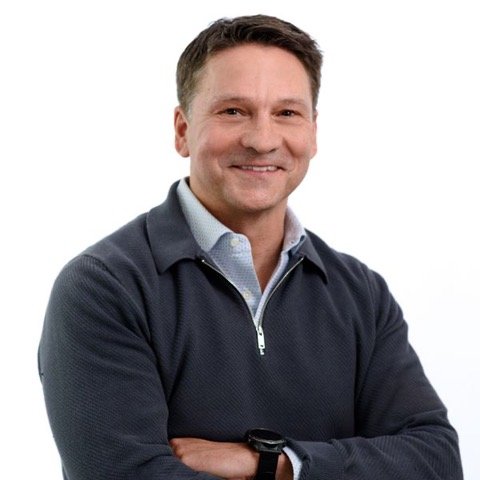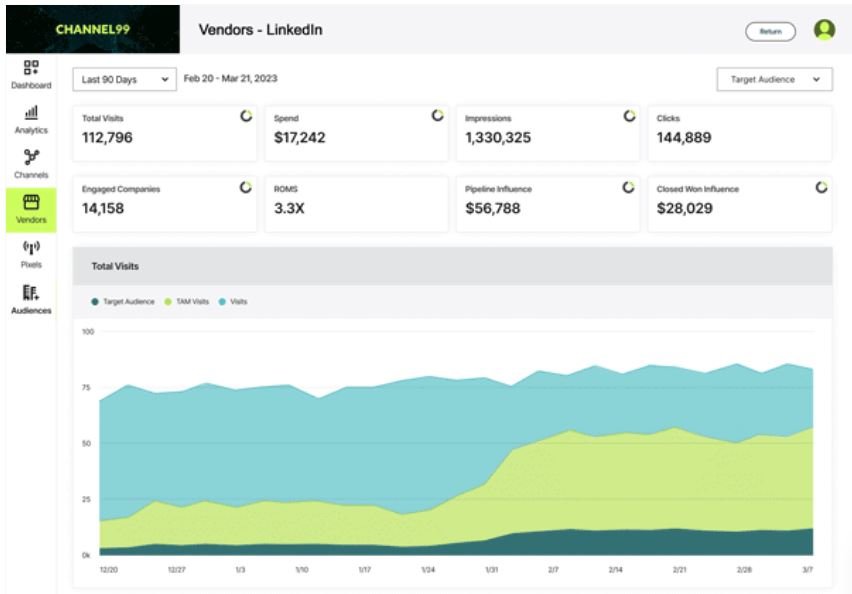MSIV Invests in Sausalito’s Channel99
Q&A with Founder & CEO Chris Golec
Tuesday, June 18, 2024 from Sausalito, CA
In 2021, Marin Sonoma Impact Ventures launched the North Bay’s first regional venture capital fund and began deploying capital into Marin + Sonoma’s most promising startup companies.
Today, we are excited to share details around our recent investment in Sausalito’s Channel99, a startup that is changing the way companies measure and invest in B2B marketing and digital programs.
The Channel99 solution mitigates wasted marketing investment by allowing B2B companies to determine which marketing channels reduce dollar inefficiencies, lower customer acquisition cost, and more predictably exceed sales pipeline numbers. Their solution eliminates the ‘unknown’ origination of direct website traffic by using Smart Tracking Pixels designed for B2B, allowing attribution to the right vendor.
Channel99’s mission is to lead the next phase of digital transformation in B2B and become the definitive source of truth for B2B marketing performance.
Why We Invested
Technological innovation and widely used attribution methodologies have brought much-needed efficiencies to consumer marketing over the past two decades.
Yet B2B digital marketers each year spend ~$50 billion on digital advertising and the efficacy of that spend largely remains a black box. The Channel99 solution offers true insights to B2B Chief Marketing Officers for the first time so they can make better-informed decisions about where to spend their budget.
This is Channel99 Founder Chris Golec’s third startup journey. He founded and led Demandbase, a B2B marketing technology company that pioneered the account based marketing (ABM) category and has now grown to 1,000+ customers and 750+ employees. He previously founded Supplybase to help global manufacturers collaborate with their supply chain to bring new products to market, which exited for $380 million.
Chris is well-steeped in the challenges faced by B2B marketers and, with Channel99, he and the team are building a ‘must-have’ tool for the next generation of marketing leaders.
MSIV Founder & Managing Partner Zachary Kushel sat down with Channel99 Founder & CEO Chris Golec to discuss the future of B2B marketing and Channel99’s vision to bring clarity to an opaque space.
Channel99 CEO Chris Golec
ZK: Chris, when did the light bulb go off for you with the idea for Channel99?
CG: I launched my first startup back in 1996 – we built supply chain software, and after we sold in 2000, as I was reflecting on our journey, I realized how hard marketing was for us because almost all marketing technologies were built for consumer businesses. B2B marketers like us spent so much money yet had so little control over vendors and achieving quality business outcomes. So I had this idea in 2004 to build what would effectively be a supply chain platform for B2B marketers, to help them make data-driven decisions, but it was just too early for that business to work.
I went on to found Demandbase which built solutions for account based marketing, and we were very successful, but around 2020 it became clear to me that the market, now more than ever, needed this unbuilt tool to exist. Even more investment was piling into B2B digital, and with the advent of AI, data, and the cloud, it felt like the timing was now right. I polled a bunch of prospective customers to validate the idea that the market was finally ready, and in 2022 I had an initial business plan, raised our initial financing, and we were off to the races.
ZK: You mentioned Demandbase, where you pioneered this concept of ABM, or account based marketing. What does that mean for the uninitiated? Why was that innovation so important for B2B marketing?
CG: ABM sounds so simple, and it really is so simple, but it took forever to become a category. Account based marketing is focusing your marketing dollars only on the accounts your sales team should be selling to. Demandbase built technologies that helped people advertise just to the right companies. The platform personalized your website in real-time based on the company of the person visiting the website, by example, so a healthcare buyer visiting would see imagery and messaging related to the healthcare industry.
This basic concept had a huge impact to the point where Demandbase is now a large-scale company and counts many of the world’s fastest growing companies as customers. The largest ad tech companies themselves all use Demandbase to fuel their own B2B advertising efforts.
ZK: With Channel99 then, building off your learnings in leading Demandbase, what is your vision for the product, and how does the AI moment we find ourselves in impact where you are heading?
CG: AI is being used in the marketing world to write content and create brands and presentations, but it’s not yet being used to make investment decisions such as, “Where should I spend this extra $100,000 to impact my pipeline?” or “I’m needing to cut my spend by $300,000 – where should I do that to minimize impact to our revenue?” These are simple questions with hard-to-get answers, and the attribution tools used today just don’t work. None of the traditional approaches – first-touch, last-touch – are predictive.
Channel99 is building an account-based architecture that pulls in data from advertising platforms to begin measuring incrementality and see how spend ties to business outcomes. It’s where the consumer world has already gone but where B2B has lagged. Our tool will ultimately become an AI-powered decision-making engine for B2B marketers, to help them be smarter with their dollars and tell them where to stop spending money. We are positioning ourselves as the source of truth, meaning we are unbiased, and since we are not trying to sell ads or leads, we can impartially measure outcomes across different vendors and channels.
ZK: Can you quantify the attribution problem you are looking to solve, and what makes your approach novel in trying to solve it?
CG: 60%-70% of traffic going to a B2B site gets attributed to a bucket called direct, meaning that people just typed in the URL. But that’s not really what happened – they probably saw an ad, read a white paper, saw a social post, even read this interview. We’re solving this by using a view-through pixel. It’s not too complicated – anytime an ad is served, we can detect the account and match it to a targeted account list or audience and determine if that same IP address came to the website afterwards. It’s based on timestamps rather than tracking or cookies.
If LinkedIn, for example, is actually driving the bulk of that previously unattributed traffic, but they’re not getting any credit for it, we want to give the credit where credit is due. The marketer needs to know that channel is performing, and LinkedIn should want this known as well, so we hope to work with them to make this very easy to use within their platform.
ZK: Paint a picture of the impact Channel99 could be having five years from now.
CG: In five years, we want to be deployed at scale with hundreds of customers, both medium and large, across industries. We want functionality whereby a marketer could select 200 companies they want to sell to and Channel99 could immediately tell you how much to spend and with which vendors to generate the pipeline needed to hit a specific revenue goal. Moreover, we want integrations fully built out with all the platforms a marketer could want to spend money on, and marketers at the touch of the button could have changes automatically made for them in these partner platforms by making selections in ours.
Channel99 VP Product & Customer Experience Mark Yatman and CEO Chris Golec at Channel99’s Sausalito offices
ZK: What does it mean to you to be building Channel99 in Marin?
CG: I’ve now lived in this community for almost 25 years. Demandbase’s first office was at 4000 Bridgeway in Sausalito, and it used to be that your investors would want you to locate on the peninsula or in the city, to be closer to them and software engineers. The world has now changed – the North Bay has so much talent, especially in marketing and sales, but even now with local engineers, and more and more I meet people at neighborhood parties working in software and technology which didn’t happen so much before.
I prefer to be in the office, especially in these early days of our company, so we’re building Channel99 in Sausalito as well as in Seattle and Salt Lake City. There’s an incredible energy here, and I’m excited to build locally and recruit incredible talent from the community to help build our company in Marin. I bike to work as many days as I can, and I’m excited for the future of this growing startup community and for us to be collaborating with MSIV.





